'Nobody intervened': Portapique resident dies after speaking out about mental health issues
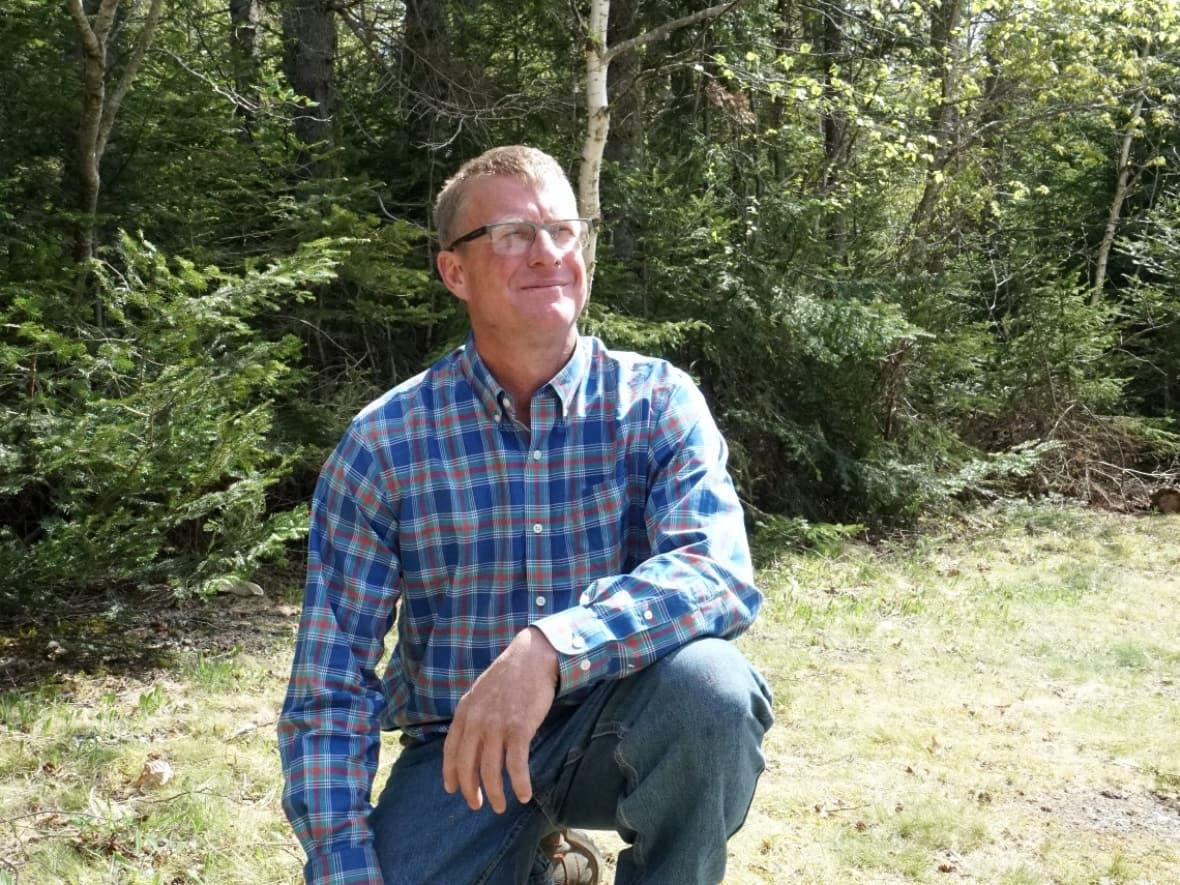
A resident of Portapique, N.S., who survived the mass shooting that began in the small community in April 2020 has died suddenly after years of "hell" trying to move away from the area where many of his friends and neighbours were killed.
Leon Joudrey, 54, died Sunday, just weeks after he and Portapique residents, their loved ones and victims' families spoke with the Mass Casualty Commission leading the public inquiry into the massacre. A transcript of that group meeting was released by the inquiry Thursday.
Joudrey talked about how hard it was navigating the mental health system in the immediate aftermath of the shootings, where 13 of the 22 victims were from Portapique. He said an offer was made to set him up with a professional who would point him in the right direction, but he was "in no state of mind" to deal with that.
"When you're shaking every day and somebody tells you it'll be three weeks [for help], doesn't help you much," Joudrey told the commission. "It's like calling 911 and getting a recording."
The RCMP confirmed they were called to a home in Portapique on Sunday afternoon where a man was found dead. The death is not considered suspicious, and the case was turned over to the provincial medical examiner.
On social media, many people have been sharing an updated image of the ribbon representing the victims of the mass shooting. It originally bore the number 23 to represent 22 victims and an unborn child, but has been changed to 24 to include Joudrey — a man described in his obituary as a father and lover of the outdoors.
Gunman's spouse sought help from Joudrey
Joudrey was the person who Lisa Banfield, the gunman's spouse, ran to for help early on April 19, 2020. He told police and the inquiry that Banfield appeared at his door shaking and upset around 6 a.m. AT, saying she had spent the night in the woods after escaping the gunman.
He told the commission he'd spent most of the past two and a half years since the shootings away from his property, which he was struggling to sell, but "I didn't really have a spot to live; that was a little rough."
Mallory Colpitts, a former resident of Portapique who also lived through the massacre, was in the small group session with Joudrey and others in September.
Colpitts said she and Joudrey had similar struggles trying to get out of the area, and Joudrey told her about how he spent many months in a cabin in the woods rather than his Portapique home.
"He expressed to me that … although it was isolated, it still felt to be the better alternative than to remain there, you know, surrounded every day by those memories," Colpitts told CBC News.
Colpitts said she couch-surfed with friends and family for months before she managed to sell her home. The memory of hiding in her closet with a loaded gun in the early hours of April 19, not knowing if the killer would come to her next, haunts her.
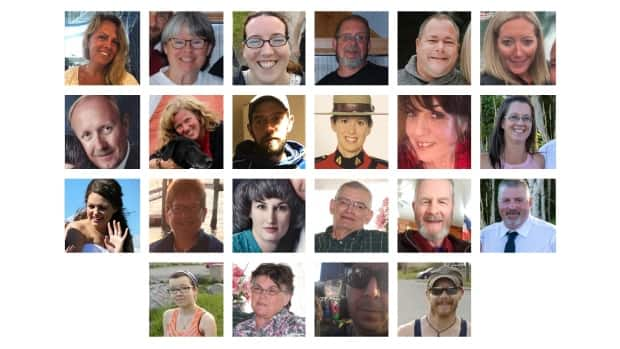
When things fell through with the new house she had hoped to purchase, Colpitts said she found herself in a desperate situation with nowhere to stay amid the ongoing housing crisis in Nova Scotia.
She ended up staying for weeks in victim Lisa McCully's vacant home in Portapique, across the road from the mass shooter's burned-down property.
"You look outside and you can account and know that, OK, there was a deceased body here, and here, and here. Driving by burnt and torn-down properties," Colpitts said.
"You still had to see that day in and day out. I was just trying to survive at that point and get to the next step on my own."
Colpitts said she was lucky to have a psychologist and benefits in place through her job before the shootings. However, she said when she asked Victim Services for help getting a type of therapy her practitioner didn't offer, she never got a response.
She said for people like her and Joudrey, "no amount of psychotherapy" will help if their surroundings are constantly triggering.
Earlier this week, a friend texted her about Joudrey's death, which was the same way Colpitts found out about the killings in Portapique early on the morning of April 19, 2020.
"Nobody intervened. No one," Colpitts said. "I'm sad about his loss, and I hope it doesn't lead to nothing."
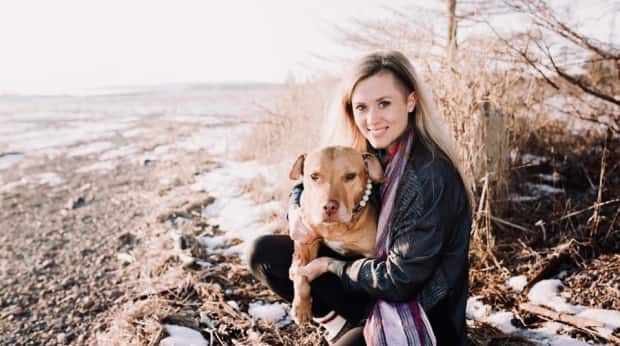
Families of victims, residents echo concerns
Others in the commission meeting with Joudrey and Colpitts echoed issues getting help for their families.
Darrin Murphy attended on behalf of his older brother Bernie Murphy, a Portapique resident who died from health complications in December 2021 at age 53. Murphy said the tragedy greatly impacted his sibling, who'd been informed it would take up to nine months to get mental health support.
"When I seen him, I didn't recognize him .... he was not the same person we knew," Murphy told the commission.
His wife, Michelle Murphy, added: "I think the stress and everything contributed to his death."
WATCH | Portapique resident dies after speaking out about mental health issues:
The sister-in-law of victim Sean McLeod said the list of professionals they were handed by Victim Services to help McLeod's father was useless because no one was accepting new patients in their community.
McLeod's father was told he might have better luck in Halifax, but he decided against making the drive, said Charlyn McLeod.
In a statement, a spokesperson for Nova Scotia's Justice Department said "more could have been done."
"Victim Services makes every effort to keep the list updated, however we do not always know if counsellors are at capacity to take new cases unless they reach out to us," said Peter McLaughlin.
Joudrey struggled to sell Portapique home
Colpitts said she finally moved into her current home in Dartmouth about a year and a half ago, but Joudrey spoke to CTV Atlantic last week about how he was still stuck at his house in Portapique.
"Living here is a complete nightmare," Joudrey said on Oct. 26. "All I see is my friends that died, and fires, and SWAT teams and I don't even want to be here anymore … It's been hell."
Joudrey told CTV he was under financial strain as he had not been well enough to return to his forestry job, and his disability benefits would be ending in early 2023.
As a federal employee, Colpitts said she's in a similar situation and has been feeling pressure from her workplace to either return soon, retire or lose her job. She asked the commission to advocate for those impacted by the shooting to be exempt from internal policies that would cut off their benefits or force them back to work while they navigate finishing the inquiry and getting mental health support.
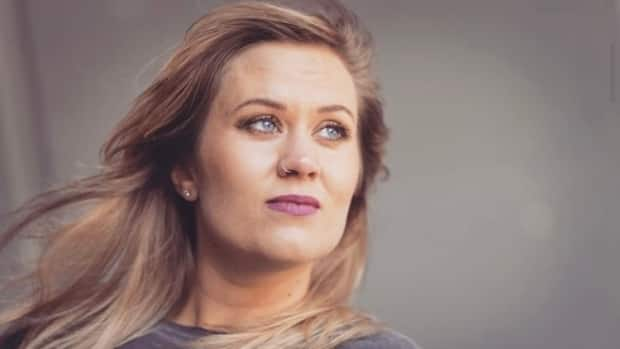
Joudrey told the commission he was hospitalized at one point. Speaking to CTV, he said there was no followup until four months later despite his diagnosis of PTSD. Joudrey said he had since started seeing a psychiatrist and had just connected with a psychologist in the past month.
"I kind of fell through the cracks in the mental health system," he said.
The fact that the $6.2-million Stronger Together Nova Scotia Fund — public donations gathered by the Red Cross to help those impacted by the mass shooting — was not available to survivors like Joudrey and Colpitts felt like another closed door, Colpitts said.
Although she said the victims' families should take priority, the Red Cross should have taken others on a case-by-case basis and offered support for the handful of Portapique residents who survived that night and continue to suffer.
"I'm already dealing with survivor's guilt. I feel bad about asking for help," Colpitts said. "A little bit could have gone a long way."
Bill Lawlor of the Red Cross said all of the funds have now been spent or committed. Soon after the tragedy, he said the organization consulted with victims' families about how to distribute the money. They looked at how much had been raised and was expected to come in, and it was deemed a "necessity" that the funds only go to those who lost a family member.
"We certainly appreciate the impact was great throughout all of these communities where each specific tragedy or crime scene was," Lawlor said.
Brian Comer, the minister responsible for the Office of Addictions and Mental Health, said Tuesday he could not comment on Joudrey's death specifically. He said the massacre was a horrific event and that he "can't imagine what the community's going through."
"It's very sad," Comer said. "We're doing our very best to try to support them as best we can."
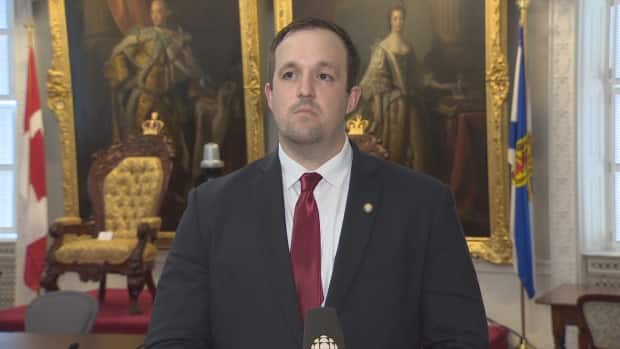
In response to Joudrey's comment that he went four months without hearing from professionals after being discharged from hospital, Comer said it would be "highly abnormal" for someone to go that long without a followup though he could not comment on specific cases.
When asked whether he was satisfied with the level of support offered to Portapique residents in the wake of the tragedy, Comer responded that "mental health needs are very complex" and resources were on the ground at the time including trauma-informed counselling and crisis intervention.
Extra support in Portapique
Nova Scotia Health provided extra services in Portapique this week to help people deal with news of Joudrey's death, and Comer said those would stay in place as needed.
Janah Fair, director of mental health and addictions in the northern health zone, said two social workers and three clinical therapists were in Bass River near Portapique to provide walk-in support starting Tuesday and would remain for at least the rest of the week. The services are being offered at the former Bass River United Baptist Church and West Colchester Community Health Centre.
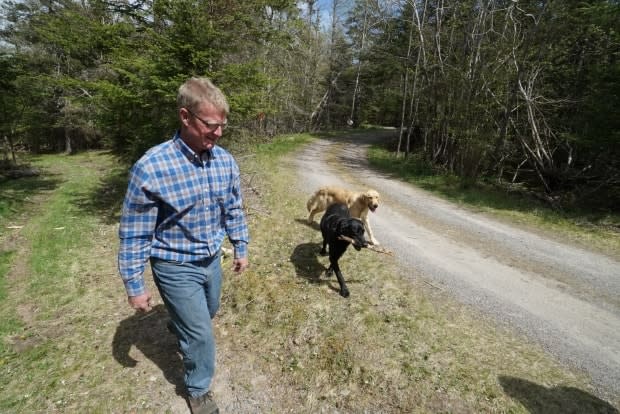
Colpitts said she'd like the commission to make suggestions about how communities and systems can better help survivors who didn't lose a family member and might not qualify for certain support or donations.
"I hope it does lead to some meaningful recommendations about acknowledging, you know, displacement and forcing survivors to … remain in a place where they were traumatized," Colpitts said.
Joudrey's obituary said he was originally from Sheet Harbour, and a man at home in nature who loved spending his time in the woods, on the water fishing, or hunting. He will be deeply missed by his family, including two children, sister and mother, the obituary said, and the two dogs he "considered additional children."
Anyone struggling with mental health should call 911 in an emergency, or the Nova Scotia 24/7 toll-free crisis line at 1-888-429-8167.
MORE TOP STORIES


